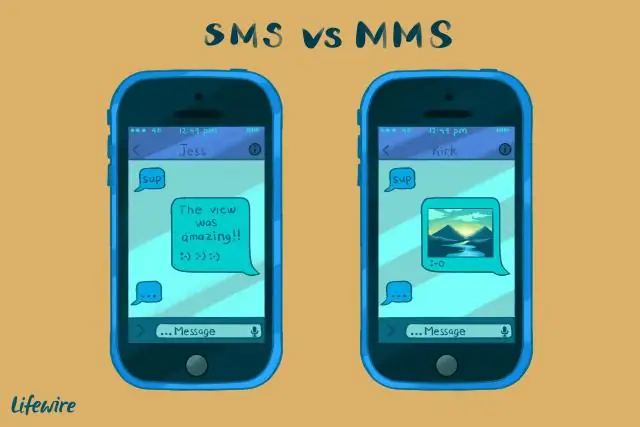
Table of contents:
- Author Bailey Albertson albertson@usefultipsdiy.com.
- Public 2023-12-17 12:53.
- Last modified 2025-01-23 12:41.
How not to cry from an onion and why it happens

Each hostess has several "signature" first and second courses. And hardly any of them do without a bow. Cutting onions is the least favorite pastime in the entire cooking process, pain in the eyes and tears can ruin the mood for a long time. Today we will talk about how to learn not to react to the "tear" onion.
Why does a man cry from a bow
The unpleasant property of onions to cause tears has been known since ancient times. But the real reason for this phenomenon has been studied relatively recently. When cut, the pulp of the onion releases a lacrimator, a substance that is highly soluble in water, including tears. When interacting with moisture, the lacrimator forms sulfuric acid, which irritates the mucous membrane of the eye.

Tears when cutting onions can spoil your mood for a long time.
The most common plants of the Alliums group (onion family) used for food are:
- garlic;
- onion;
- shallot;
- leek.
It is they who have a complex protective system that discourages the desire to take them for food. Onion cells contain enzymes that destroy certain molecules and certain types of amino acids. Until the integrity of the onion pulp is compromised, these enzymes are located in different parts of the cell. But as soon as you cut open the onion, they immediately mix and react to form sulfur compounds.
The resulting reaction releases insecticides to the surface, which impart an unpleasant odor and taste to the plant. Such protection scares away many insects well. The chemical composition of the insecticide depends on the type and variety of plants.
For example, the sulfuric acid secreted by common onions is poisonous, unstable, and readily interacts with the enzyme to create thiopropanol S-oxide (C3H6SO). It is this caustic substance that makes us cry when we cook. Being very volatile, it easily rises to the eyes, which, in turn, emit tears for protection, washing off the caustic mixture from the mucous membrane.
Some of the thiopropanol-S-oxide becomes sulfuric acid on contact with moisture. Of course, the dose of the substance is extremely small, but since we are talking about one of the most potent substances, do not forget about the precautions.
How to cut onions and not cry
Over the years, housewives have developed ways to get rid of tears while cutting onions. Some of them help unambiguously, others selectively (not for everyone and not always). Whether this or that method suits you can only be found out experimentally. Do not be surprised at the extravagance and unusualness of some of the methods.
- Professional chefs recommend cutting the onions as quickly as possible. Thus, volatile substances will not have time to reach the surface of the mucous membrane of the eyes. True, few housewives can boast of such speed in cutting vegetables.
-
Use only a sharp knife without cloves: it should just chop, not crush the onion, otherwise you will release much more volatile corrosive substances from the pulp of the onion. Remember to rinse your knife frequently with cold water.

Slicing onions Use a straight, very sharp knife
- Hang onion peels on your ears. Of course, it looks ridiculous, but it helps a lot in our problem. You can also place half an onion over your head while slicing.
-
Sprinkle some salt on the cutting board: it absorbs moisture, and with it, traps other substances.

Sprinkled salt Salt sprinkled on a cutting board will trap onion juice
- You can put a burning wax candle next to you while cutting onions. The fire burns some of the active substances in the onion juice, making it safe for the mucous membranes of the eyes.
- As soon as you feel a burning sensation in your eyes, smell the coffee beans or something else with a strong, bright smell. Parsley helps a lot: chew it thoroughly during the process.
- Chop the onion next to the running water that is on, as close to the sink as possible. Wipe your eyes often with a wet handkerchief, rinse your hands.
- Place the onion in the freezer or refrigerator for about 20 minutes. You can dip the onion under running cold water. The low temperature minimizes the release of corrosive substances.
- Place the onion in warm, slightly salted water for a few minutes before slicing. Due to this, most of the corrosive volatile substances will be released from the pulp.
- Ventilate the kitchen while cooking: open a window or turn on a fan.
- Put water in your mouth and change it as soon as you start to feel a burning sensation.
-
Wear goggles that completely cover your eyes: swimming or snowboarding. You can even wear a clothespin over your nose or use a diving mask. So the mucous membrane of the eyes and nose will be completely protected from the effects of volatile compounds.

Masked Boy Cuts Onion Use a swimming mask to cover your nose and eyes
- Talk when chopping onions. You can sing, read poetry or chat with guests and even whistle tunes or just blow on a bow; the main thing is that the air is constantly moving, without stopping at the nose and eyes.
- Breathe only through your mouth so that the onion juice does not irritate the nasal mucosa. You can tie a handkerchief around your nose or insert cotton swabs into your nostrils. Moisten them with salt water to enhance the effect.
- Stick your tongue out while cutting the onion. Moisture on it will retain and absorb volatile compounds before they rise to eye level.
Which way is the best
Most of the considered methods may not suit everyone, and not only technically, but also physiologically. For example, not everyone has a gas mask, diving mask or appropriate goggles, and regular ones are unlikely to work, since they do not block access to the nose and eyes. But if you have these items, be sure to use them: this method has many fans.
It is not always possible to wash onions under cold running water or keep them in the refrigerator. For example, if you decide to go outdoors with friends, such methods will not be available. But you can talk and sing songs in the process as much as you like!
In winter, it is undesirable to open the windows too often for airing, and you have to cut onions regularly, especially if you have a large family or guests often come. And the fan may not save you. Therefore, chewing gum, fresh parsley or sniffing coffee beans will be the most convenient way (although, unfortunately, not for everyone).
Yet seasoned chefs say that the most effective methods are running water and placing the onions in the freezer
Reviews and advice from chefs
Video on how to chop onions without tears
We hope our tips will help you no longer be afraid of cooking first and second courses because of the caustic onion juice. Share your ways with us in the comments. Bon Appetit!
Recommended:
What To Do If, After Flashing Android, The Phone Or Tablet Does Not Turn On, Does Not See The Network, Does Not Charge

Why does my smartphone or tablet not work after changing the Android version. How to troubleshoot various problems. How to properly reflash a device
IPhone Does Not See Or Does Not Catch The Network, What To Do

What if iPhone won't connect to the network. Checking the SIM card, disabling airplane mode, removing SIM-lock, hardware breakdowns, etc
Why On Windows 10 The Start Button Does Not Work And The Main Menu Does Not Open

The most common problems in the "Start" menu on Windows 10. The reasons for the appearance. Solutions: universal and for specific cases
What To Do If Google Chrome Does Not Work - Reasons And Solutions For Problems With The Browser, Including When It Does Not Start

The reasons why Google Chrome does not work: does not start, pages do not open, a gray screen is displayed, and so on. Solutions with photos and videos
What To Do If Yandex Browser Does Not Open On A Computer - Why The Program Does Not Start, How To Make It Work

Why "Yandex Browser" does not open in Windows. Solution to the problem: disabling autorun, updating and reinstalling the browser, clearing the cache and registry
